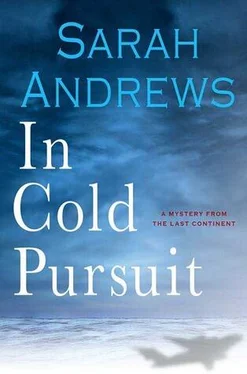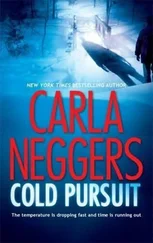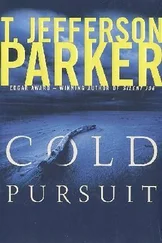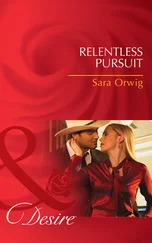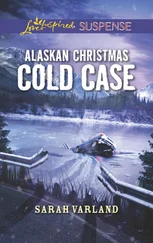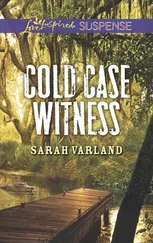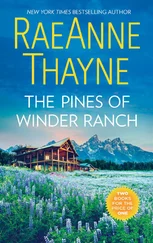“I’ve got survival training tomorrow.”
“Happy Camp. Have a party. They’ll put a five-gallon plastic bucket on your head to simulate a whiteout, like that’s going to really learn you.” She shook her head. “It’s not their fault. There’s just entirely too much to absorb. I’ve been down here seven seasons, and some days I feel like I’m only just getting the hang of it.”
Five minutes’ additional brisk hike brought them to the end of the point. There, the ground dropped off precipitously on three sides, plunging fifty feet to the frozen sea below. The ice met the land in a jumble of heaved-up slabs where the winds and tides had worked it, like puckered waves stilled by a snapshot in the act of slapping the shore.
Someone had erected a cross at the summit of a small rise at the very end of the point, and just below it, Valena could see a gently sloping roof made of wood and built in the shape of a shallow pyramid. It was supported by posts. Valena assumed that this must be a protective canopy erected to preserve the original structure, which must exist as ruins underneath; after all, she reckoned, more than one hundred years of fierce Antarctic weather had thrashed it since Scott’s men had built it.
One hundred years , thought Valena. Not much more than the average human lifetime. In all the lifetimes of the human species, great civilizations had arisen and fallen and been built again on all six other continents, but here in Antarctica, the touch of humanity was this new, a tiny foothold on an unimaginably large expanse of ice. This had been the last continent to be located, the hardest to reach, and by far the most difficult on which to maintain even this fragile encampment. Less than two hundred years ago, there was no southern continent on world maps. In the 1770s, Cook sailed around a southern sea choked with ice but could only hypothesize that land lay beyond it. So obscuring was its veil of ice that land wasn’t sighted until 1820, tantalizing yet unapproachable through a ship captain’s spyglass.
Valena moved closer to the cliff to look off toward the Transantarctic Mountains, drawn simultaneously by emptiness and fulfillment and the fear that she would not make it to the continent itself but instead be sent home in an agony of frustration.
“Don’t wander too close to the edge,” said Cupcake. “That cross there? It’s for this guy Vince somebody, who was the first man to die in McMurdo Sound. He fell off this cliff in the middle of a blizzard. They never found his body.”
“I shall proceed with respect, then.”
Cupcake pointed at the hut. “When you’re done ogling the scenery, join me in there.”
The sun was high in the northern sky, throwing shadows to the south, the reverse of what she had grown to consider normal back home in North America. She shook her head. Her world was turned upside down and inside out or, more accurately, outside in. As a particularly strong gust of frozen wind bowled in off the ice, Valena turned and followed Cupcake to the low, square structure.
Two women stood underneath the overhanging roof by a door that led into the hut. “Please brush all the snow off your boots,” one instructed, as she welcomed them in out of the wind.
Valena scraped her enormous blue boots. “Where does the original hut begin?” she inquired.
“This is the hut.”
“But the wood looks almost new!”
“Things don’t rot out here.”
The windows were small, sparse, and recessed under the veranda, so the interior was dim, its darkness exaggerated by a thick accumulation of soot on the walls and ceiling. Two pairs of antique outer pants hung on a clothesline. Heaps of strange substances were stacked near one wall.
Catching her inquiring gaze, a man who was standing there wrestling the legs of a camera tripod said, “Hundred-year-old seal blubber. Want to try some? It’s good with garlic.”
Valena gave him a smile. He was a moderate-sized man of husky build and was endowed with pendulous mustaches that bristled with gray. He wore a blue watch cap, and instead of the blaze-red Valena wore, the shell of his parka was made of light brown canvas. A pair of faux tortoiseshell half-glasses gave him an oddly professorial air, and he gazed through them now at the leg-extension catches on his unruly tripod. With a final tweak, the last of the legs slid down into place. He jiggled it around, getting it into position, and then, apparently satisfied, he opened the top of his parka and produced an old Nikon F2 camera, which he clipped onto the top of the tripod.
Cupcake appeared at his elbow. “Oh, good, you’ve found each other. Ted, this is Valena. She’s a student of Emmett Vanderzee’s.”
Ted closed his eyes for several moments. When he opened them again, he wasn’t smiling anymore.
Valena waited.
Cupcake said, “Valena just arrived yesterday afternoon, and it was news to her that her professor wasn’t going to be here to greet her.”
Ted closed his eyes again and sighed heavily. “That’s very bad luck for the young lady, but what exactly do you expect me to do about it?”
“I want you to talk to her. Tell her what you know.”
Pain suffused Ted’s voice as he said, “I know very little.”
Cupcake put a hand tenderly on Ted’s shoulder. “But you were there, so you know stuff.”
“I was in the camp, but I wasn’t there when the guy died.”
“Then tell her that much.”
Ted finally reopened his eyes and looked deep into Valena’s.
“Anything you can tell me would help me understand,” Valena said. “Anything at all.”
Ted looked away. After a moment, with great consternation, he unclipped his camera and began folding up his tripod.
“I’m sorry,” Valena told him. “I didn’t mean to interrupt your work. Would you like me to meet you later on, maybe? When you’re done?”
“No, young lady, I am now done for the day, trust me on that. But we’re not going to talk about this here.”
Cupcake said, “When someone dies out here, it really gets to people, especially if they knew the person, even if he was a raging jackass.” Focusing her sharp eyes on Ted, she added, “Especially if you think you could have changed things had you stayed in camp. It wasn’t your fault, Ted.”
“Then it was nobody’s fault. That’s what’s so ridiculous about yanking Emmett off the ice. He didn’t kill that man any more than I’m the Queen of Sheba.”
“In a previous life, Ted. That’s why you’re so good at contacting your feminine side.”
“Stuff it up your tailpipe, Cupcake.”
Ted dropped his camera into a ziplock bag, then opened his parka halfway and tucked the bag inside the top of his bib overalls, up against a layer of navy blue fleece, and pulled his zipper back up to his chin. With a softly paternal tone, he advised Valena, “If you take your camera indoors when it’s cold, the condensation will screw it up. And the battery has to stay warm to work. It will die at these temperatures so fast you wouldn’t believe it, but if you warm it up again, it comes back.”
“When are you going to get a digital camera?” Cupcake chided.
“Sweet thing, I am a devout Luddite. I will still be shooting film when you’re gumming your soup in some home for the ancient and insane.” He glanced over his shoulder at Valena. “Kind of silly shooting print film, considering that I don’t see the results of my work until I go back north, but it’s what fires my rocket.”
Outside in the glare and reflection of twenty-four-hour sunlight and wraparound ice, Ted led the way up the short hill to Vince’s Cross. There, he set down his gear and looked out across the frozen sea toward the continent. “You know your landmarks yet, Valena?” he inquired.
Читать дальше
